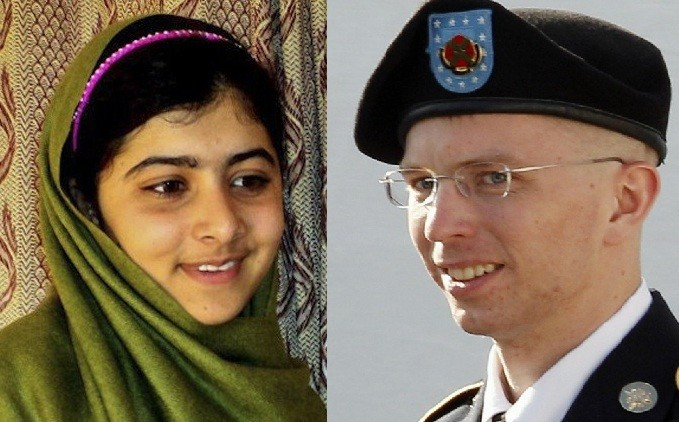When the Guardian Battles WikiLeaks, Nobody Wins [BLOG]
Mud-slinging between two defenders of the moral high ground does nobody any good - least of all Bradley Manning and Malala Yousafzai, writes Oliver Balaam

Last week, the Guardian, in a move that could have drawn a line under a series of spats between the newspaper and WikiLeaks, announced Bradley Manning was readers' Person of the Year. Unfortunately, bitterness from both sides soured what should have been a celebration, shifting attention yet again away from Manning's trial and apparent mistreatment at the hands of the US military and back to a petty dispute that simply refuses to die.
The dispute harkens back to the unintentional but thoroughly negligent publishing of 250,000 unredacted US diplomatic dispatches. Der Spiegel has the most comprehensive account of how this occurred, showing that blame lies with both parties.
Since this incident WikiLeaks and the Guardian have largely refused to work together and worse, have resorted to badmouthing each other in a series of public exchanges. The Guardian resentfully awarding Person of the Year to Manning, and WikiLeaks' hostile response, is yet another incident that ultimately diverts attention from the important revelations of serious criminal wrongdoing that both parties have been invaluable in uncovering.
The Guardian threw the first stone when they wrote that Manning's landslide victory was the result of some "rather fishy voting patterns". This deliberately ambiguous statement makes the unsubstantiated implication that WikiLeaks somehow manipulated the vote. The only way they visibly did so was to tweet in support of Manning, which hardly constitutes foul play.
While misleading wording may seem a minor offence, it's telling of the outlet's general approach to reporting on WikiLeaks and that the effects of the comment were pronounced. Indeed, when I highlighted the implications of the comment on Twitter, a Guardian reader responded by asking: "What's the probability the other candidates' supporters used bots to vote for them?" This is a first-hand example of how one comment can quickly get out of hand and, thanks to social media, all it takes to smear an organisation that is already under attack from all sides. Ultimately, unless they substantiate this claim, the Guardian are misleading their readership due to an irrelevant editorial-level dispute.
All of this gave WikiLeaks a rare opportunity to take the moral high ground, an opportunity they squandered spectacularly. Launching a scathing Twitter attack against the Guardian they slighted another Person of the Year candidate, the incredible Malala Yousafzai, in the process. They accused "the pro-war lobby at the Guardian" of "spitting wasps over Manning's win while hiding under a wounded girl's skirt". Grotesque imagery aside, this delusional view of the Guardian as a pro-war outlet insults the intelligence of WikiLeaks supporters much in the same way that the Guardian have insulted their readership. Furthermore, they fall into the same trap as the Guardian in belittling and ignoring the monumental achievements of the people the contest was supposed to celebrate.
Are Islamic women used by pro-war lobbyists to justify military interventions? Absolutely, in fact Lila Abu-Lughod wrote a fantastic paper on just that. Does a political agenda dictate the data that WikiLeaks pursue and release? Again absolutely.
This is beside the point though. Ultimately this embarrassing mud-throwing contest shows two of the most important journalistic organisations of our time at their very worst. It's a clear attempt by both sides to manipulate their readership and it tactlessly uses the heroes and victims the Guardian set out to celebrate as little more than political platforms, poster children for a debate that has little to do with them. This grudge-bearing style of reporting leaves little room for criticism of the oppression of the Taliban or the wanton acts of killing by the US that Yousafzai and Manning fought so bravely to expose. It's selfish, worthless and we must expect more from our media.
Oliver Balaam: @BalaamSafe
© Copyright IBTimes 2025. All rights reserved.



















